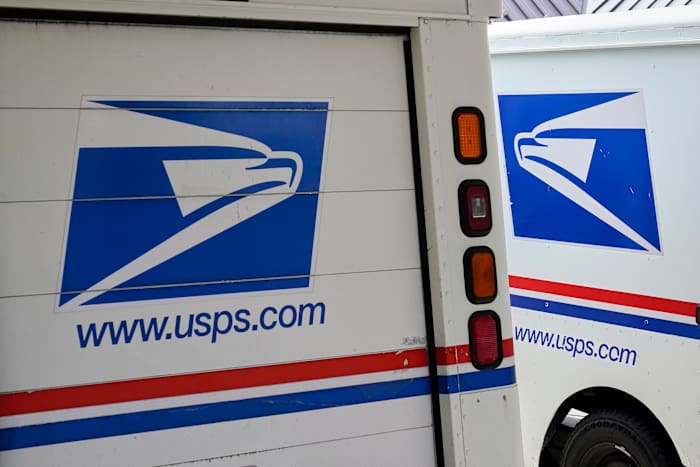Share this @internewscast.com

Postal traffic to the United States plummeted by over 80% following the Trump administration’s decision to remove a tariff exemption for low-cost imports, according to the United Nations postal agency on Saturday.
The Universal Postal Union explained that it has initiated new measures to enable postal operators globally to compute and gather duties or taxes after the U.S. revoked the “de minimis exemption” for parcels of lower value.
Eighty-eight postal operators have reported to the UPU that they have halted some or all postal services to the United States until a solution is found concerning U.S.-bound parcels worth $800 or less, which was the threshold for avoiding customs fees on imported goods.
“The worldwide network witnessed an almost complete stop in postal traffic to the U.S. after the introduction of the new rules on August 29, 2025. For the first time, this placed the responsibility of customs duty collection and remittance on transportation carriers or U.S. Customs and Border Protection-approved qualified entities,” stated the UPU.
The UPU pointed out that data exchanged among postal operators using its electronic network indicated an 81% reduction in traffic from its 192 member countries—almost all countries globally—on August 29 compared to the previous week.
The Bern, Switzerland-based organization noted that “significant operational disruptions” have emerged because airlines and other carriers claimed they were either not willing or unable to gather these duties, and international postal operators had not set up a connection to CBP-approved companies.
Before the measure took effect, the postal union sent a letter to U.S. Secretary of State Marco Rubio to express concerns about its impact.
The de minimis exemption has existed in some form since 1938, and the administration says the exemption has become a loophole that foreign businesses exploit to evade tariffs and criminals use to get drugs into the U.S.
Purchases that previously entered the U.S. without needing to clear customs now require vetting and are subject to their origin country’s applicable tariff rate, which can range from 10% to 50%.
While the change applies to the products of every country, U.S. residents will not have to pay duties on incoming gifts valued at up to $100, or on up to $200 worth of personal souvenirs from trips abroad, according to the White House.
The UPU said its members had not been given enough time or guidance to comply with the procedures outlined in the executive order U.S. President Donald Trump signed on July 30 to eliminate the duty-free eligibility of low-value goods.
Copyright 2025 The Associated Press. All rights reserved. This material may not be published, broadcast, rewritten or redistributed without permission.










